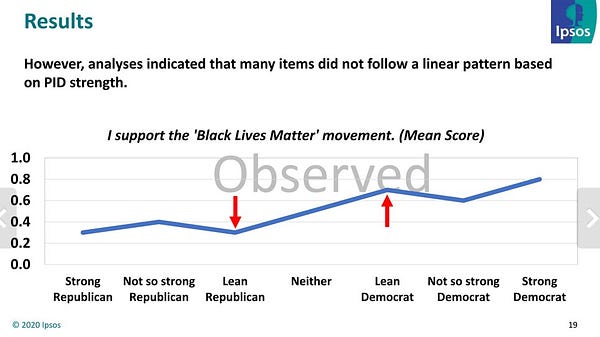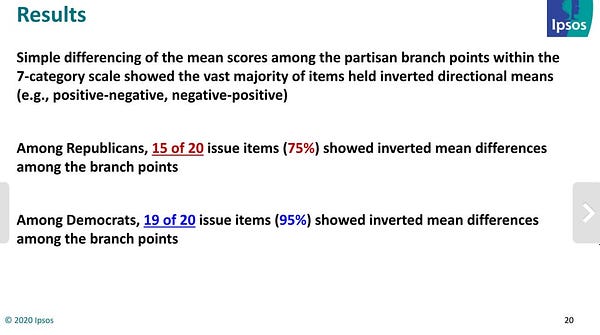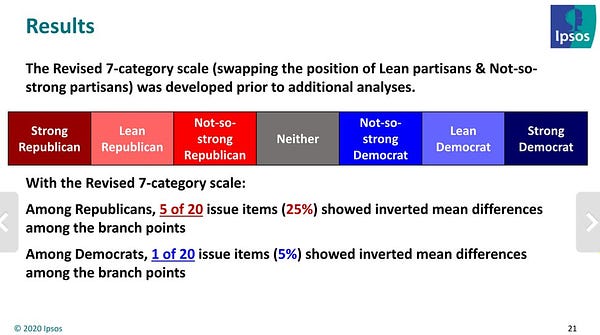How much trouble is the GOP really in?
The vast majority of Republican voters are united where it counts: in opposition to the Democrats
The air in Washington is dense with the commentariat’s insatiable desire for Republicans to pay some sort of price for the insurrection at the Capitol last month. Pundits seem desperate to score a few points against the GOP, who they rightly view as violating many of our fundamental rules of democracy. Of course, there is also a faction among the chattering class that simply wants to #OwnTheCons. As of yet, it does not seem their hunger has been satisfied to their liking.
I imagine these psychological pressures are part of the reason why so many news outlets are publishing rather apocalyptic takes about a recent decrease in Republican Party registration around the country. Across the country, tens of thousands of registered GOP voters have switched their affiliation to Democratic or a member of a third-party. From the 30,000-foot DC perspective, these numbers apparently constitute an "exodus" of Republicans from their party, a trend that should "worry" them.
I'm not so sure about all of this. There are certainly a few reasons to think the Republican Party is facing some big questions over its future, but the argument that it is somehow in crisis because of a dip in registrations leaves a lot to be desired. The issue, per usual, comes from a lack of numeracy and nuance in the news media.
Editor’s Note: This is a paid post for premium subscribers. If you are a subscriber and have friends or family that you think might learn something from this post, you should feel open to forward it to them regardless of their membership status — and if you have been generously forwarded this post by a friend that does subscribe, please consider signing up for updates yourself by hitting the button below!
The argument has three primary points of weakness. First, let's talk about the registration data itself. By all accounts, the number of people leaving the GOP is much higher than normal, eg in the months after the 2016 election. This is the primary reason people are going crazy online. They see a large number of defections, note that they are higher than Democratic ones, and conclude that the GOP is facing some type of exorbitant price for the recent behavior of many of its members (including both voters and leaders).
However, there are at least a few things wrong with this. For starters, the number of leavers isn't all that high. Across the country, I estimate that fewer than 100,000 GOP registrants have changed their affiliation. But once you account for the number of Democratic defectors to the GOP, the net change is significantly lower. Expressed as a percentage, this becomes clearer — 80,000 to 100,000 defections out of 33,000,000 voters (to use 2018 numbers) works out to 0.3% of total GOP registrants leaving the party since the beginning of the year. In other words, the number of registered Republicans today is close to 99.7% of what it was in December of 2020.
Second, the obsession over the number of defections also ignores where those switchers are going. According to voter file records, the vast majority are changing to a third party or no affiliation at all, rather than switching their affiliation to the Democratic Party. This allows me to remind you all that voter registration and party identification are not the same as vote intention. Political scientists have long identified that people who tell us they're "Independent" usually aren't. The vast majority have opinions and voting preferences that align overwhelmingly with one side of the political aisle:




Independents are not the same as moderates or swing voters. So we should expect that the Republicans changing their registration to Independent/Other/None will still overwhelmingly vote for GOP candidates the next time around.
If we look at polling, we see that Republican voters are still falling in line where it matters: in opposition to the Democrats. Contrast the following two charts of polling data from Civiqs, the first showing GOP voters' approval of Trump and second showing their disapproval of Biden:
The key point in comparing these graphs is that Republicans today are more unified in their opposition to Biden than they were in their support of Trump. And this is not because GOP defectors have stopped calling themselves Republicans. I checked YouGov's public polling numbers over the past two months and did not find any decrease in the share of Americans calling themselves Republicans. In fact, if anything, the gap between Democratic and Republican party identification has shrunk since January 6th.
Finally, there is the issue of causality. The analysts I linked above both argue that the January 6 insurrection has dented Republicans' commitment to their party. Perhaps it has made them realize how radical their leaders have become, or some other such theory. Cillizza says "The January riot has quite clearly tarnished the GOP brand in the eyes of at least a decent-sized chunk of those formerly aligned with the party. What remains to be seen is if this trend continues."
In fact, there is little evidence that the Capitol riot has hurt the GOP's image. If you zoom in on Civiqs' trend for the Republican Party's favorability rating, you'll see there has not been any significant change in the public's evaluation of the party's "brand" over the last month. Again we see that, if anything, the trend got better after the attack last month.
Another possibility entirely is that Republican Party is shedding more ideologically radical voters from its ranks, rather than moderate ones (as most people are assuming). But if we look at polls of Republicans' approval of their leaders, other last month, approval of the politicians who have challenged Donald Trump (either via speaking out against his actions or voting to impeach him) has fallen, while the former president's image has remained stable. This implies that the more radical voters have stayed on board; if they had left, GOP approval of Trump would have fallen and ratings for McConnell, Cheney &c would have gone up.
Although left-leaning commentators see the Capitol attack as a clear indictment of the Republican brand, GOP voters apparently do not see it the same way. Still, to be clear, there is no way to know either way — unless someone identifies the defectors from the voter file and then polls them directly.
...
In summary: people are making too big a deal out of the dip in GOP registration, and evidence from multiple polls suggests that Republican voters are just as unified against Democrats than ever — if not more so. I know it is hard to imagine that the Republicans wouldn’t pay a price for all the damage they have done to our institutions, given the explosive reveal of the severity of the democratic deficit over the last month, but that may just be the sad reality of America today.








"Another possibility entirely is that Republican Party is shedding more ideologically radical voters from its ranks, rather than moderate ones (as most people are assuming). We might assume this if we look at polls of Republicans' approval of their leaders. Over the last month, approval of the politicians who have challenged Donald Trump (either via speaking out against his actions or voting to impeach him) has fallen, while the former president's image has remained stable. "
Wouldnt it be the opposite? If leaders who challenged Trump have their approval falling that would mean ideologically radial voters are not leaving.